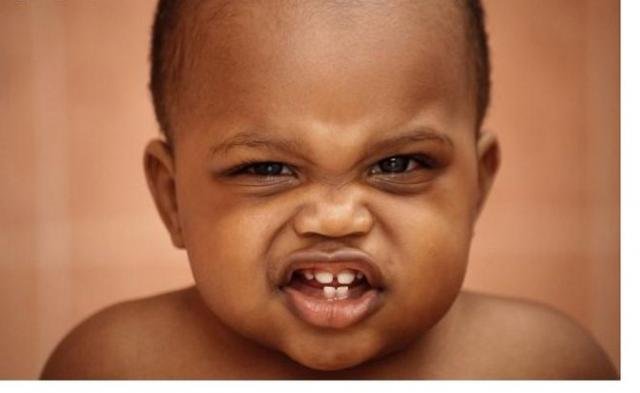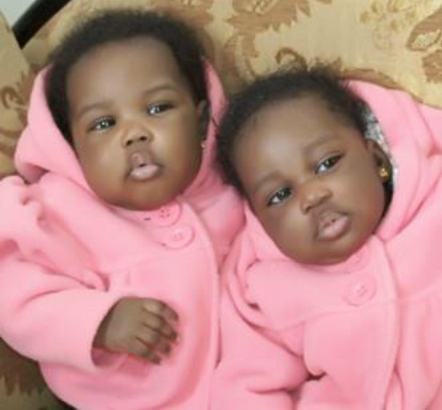CHILD NAMING IN AFRICA: A WAY OF LIFE.

Africa is the world's second largest and second most-populous continent, behind Asia in both categories. It covers about 11.7 million square miles and houses over 1.2 billion people, in 54 countries and 2 independent states.
Despite the diverse cultures and languages that exists in Africa, one thing seem to be common, and that is the belief that the nature of the name given to a child has a long way to determine the nature, personality and the behaviour of such a child.
Children are known to be the products of a successful marriage. In Nigeria for instance, a woman is expected to take in and become pregnant immediately after her wedding ceremony. Her stomach is monitored by people, hoping to see a round shape.
The coming of a child brings bundles of joy and happiness to the parents and family members. In some culture, the number of children determines the level of respect people will give her. A woman with no child is likened to a barren woman. A man with a barren wife is always advised to take up another woman or a concubine, who will produce children for him, to prevent coming to the world without leaving an impact or a successor that will inherit his properties.
When a child is born, everyone will rejoice with the family through visitation and extension of wishes and regards. The new mother and the child will be celebrated.

Traditional African names often have unique stories behind them. From the day or time a baby is born to the circumstances surrounding the birth, several factors influence the names parents choose for their children.
Whichever ethnic group you look at, these local names reveal a wealth of information about the bearer.
A typical African parent would not give their child just any name, particularly one in which the meaning wasn't known or clear to them. They'll rather take time, make consultations, ask questions, read historical myths, just to make sure they make the correct name choice that'll soot their child.
WAYS IN WHICH AFRICAN PARENTS NAME THEIR CHILDREN
There are certain different ways and they include;
1.) BASED ON RELIGION OR FAITH:
This serves as a means for African parents to exercise their fate. Across the continent, several local names have religious links. Among the Igbo and Yoruba ethnic groups in Nigeria, a name that starts or ends with Chi, Chukwu or Oluwa has some kind of reference to God.
Some names in this category include;
- Olusegun means God conquers (Yoruba, Nigeria)
- Hailemariam means the power of Mary (Ethiopia)
- Mawufemor means God's way (Ewe ethnic group in Togo, Ghana, Benin)
- Ubokobong and Enobong mean hand of God and gift of God respectively (Ibibio ethnic group in Nigeria).
2.) BASED ON ORDER OF BIRTH:
A very common trend in this part of the world, especially in cases of twins. The idea is, nobody needs to explain to a stranger who the older one is, let's save you the stress.
Examples of names here include;
- Taiwo and Kehinde in Yoruba tribe in Nigeria. The former meaning 'taste the world', and the latter 'came after'
- In Ghana, the unisex names Panyin and Kakra, which basically mean older and younger, are used for twins.

3.) BASED ON THE DAY THEY WERE BORN:
Even before parents select a western or religious name for their child, the baby already has a name.
Among some Ghanaian ethnic groups like the Akan, Ga, Ewe and Nzema, a name is automatically assigned based on the day the child is born. These day names correspond to the day of the week someone is born and so by default, everybody has one - though the name may not necessarily appear on official documents.
- Monday - Kojo (male), Adwoa (female)
- Tuesday - Kwabena (male), Abena (female)
- Wednesday - Kwaku (male), Ekua (female)
- Thursday - Yaw (male), Yaa (female)
- Friday - Kofi (male), Efua (female)
- Saturday - Kwame (male), Ama (female)
- Sunday - Akwesi (male), Akosua, (female)
4.) BASED ON HAPPENINGS AT THE TIME OF BIRTH:
This is usually controversial, however, some tribes still adopt this method. Often, such names are complete sentences.
- Ayodele (joy has come home) is a unisex name for a baby whose birth brought happiness to their Yoruba parents in Nigeria.
- Yetunde or Yewande (mother has come back) is a Yoruba name given to a girl whose grandmother or other female relative died before she was born.
- Ekaette (mother of her father) is an Ibibio name given to a girl which resembles the grandmother.
- Lindiwe (we have waited) is an isiZulu name often given to a baby girl after a long line of boys.
- Kgomotso and Pumza (comfort) are given to babies born shortly after a death or tragedy in Sesotho and Xhosa families in South Africa.
5.) BASED ON THE FUTURE THEY WANT FOR THE CHILD:
Funny isn't it? But some African parents believe a name can make or mar a child's future, and they give them names to bring the best. Examples include;
- Mfoniso which means good luck (an Ibibio name in Nigeria to bring the child the best in future)
*Orire which means useful (belonging to the Yoruba tribe in Nigeria)
CONCLUSION
There are several other methods African parents adopt in their child naming process, and it varies with tribe. Some go as far as preventing strangers from calling their children certain names that conflict their belief.
This child naming process has become a way of life that has existed for many years and doesn't look like going extinct any time soon.
So when next you see your African friend, who bears a name you do not understand, please ask for the meaning and that may just give you a hint about his/her naming.
Cheers!
Note : All photos used are obtained from public domain.
- Africa is not a country, it's a continent.
REFERENCE
https://www.google.com.ng/amp/s/www.bbc.com/news/amp/world-africa-37912748
God bless you